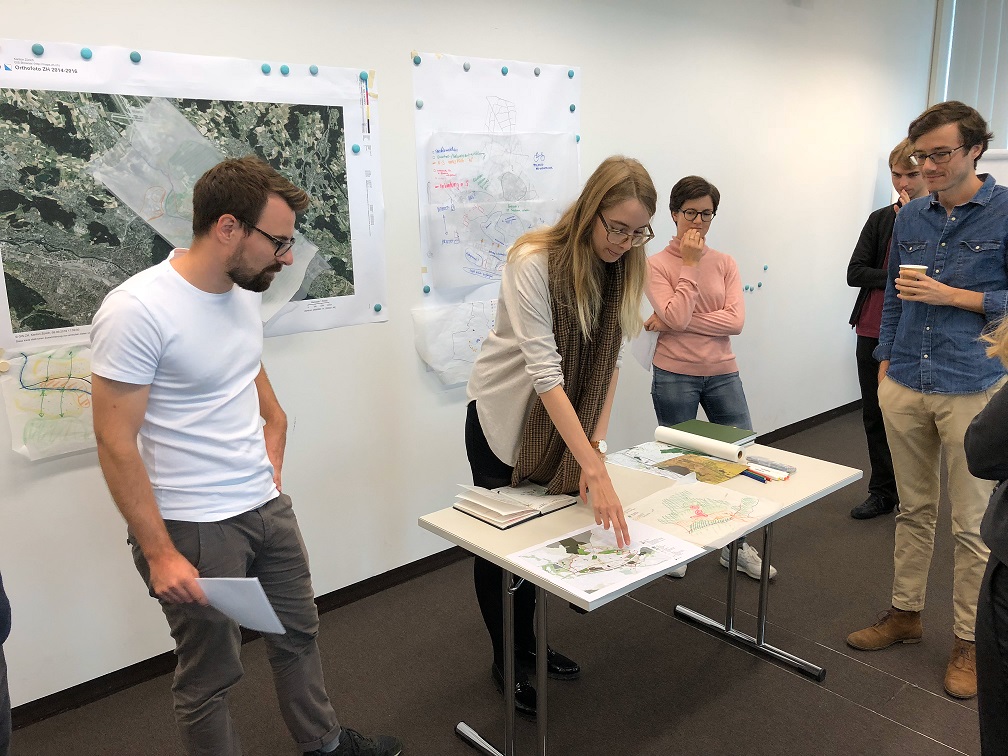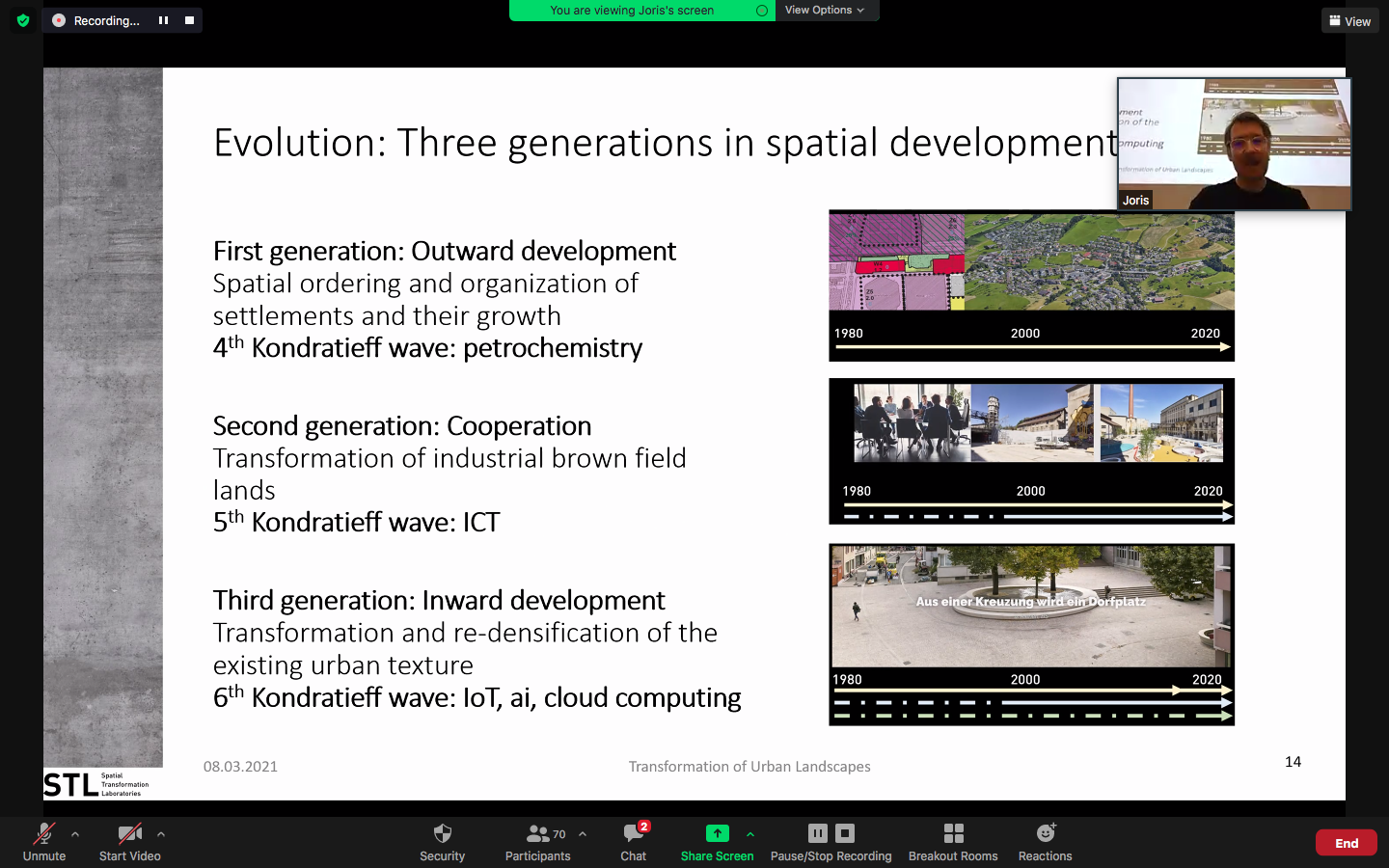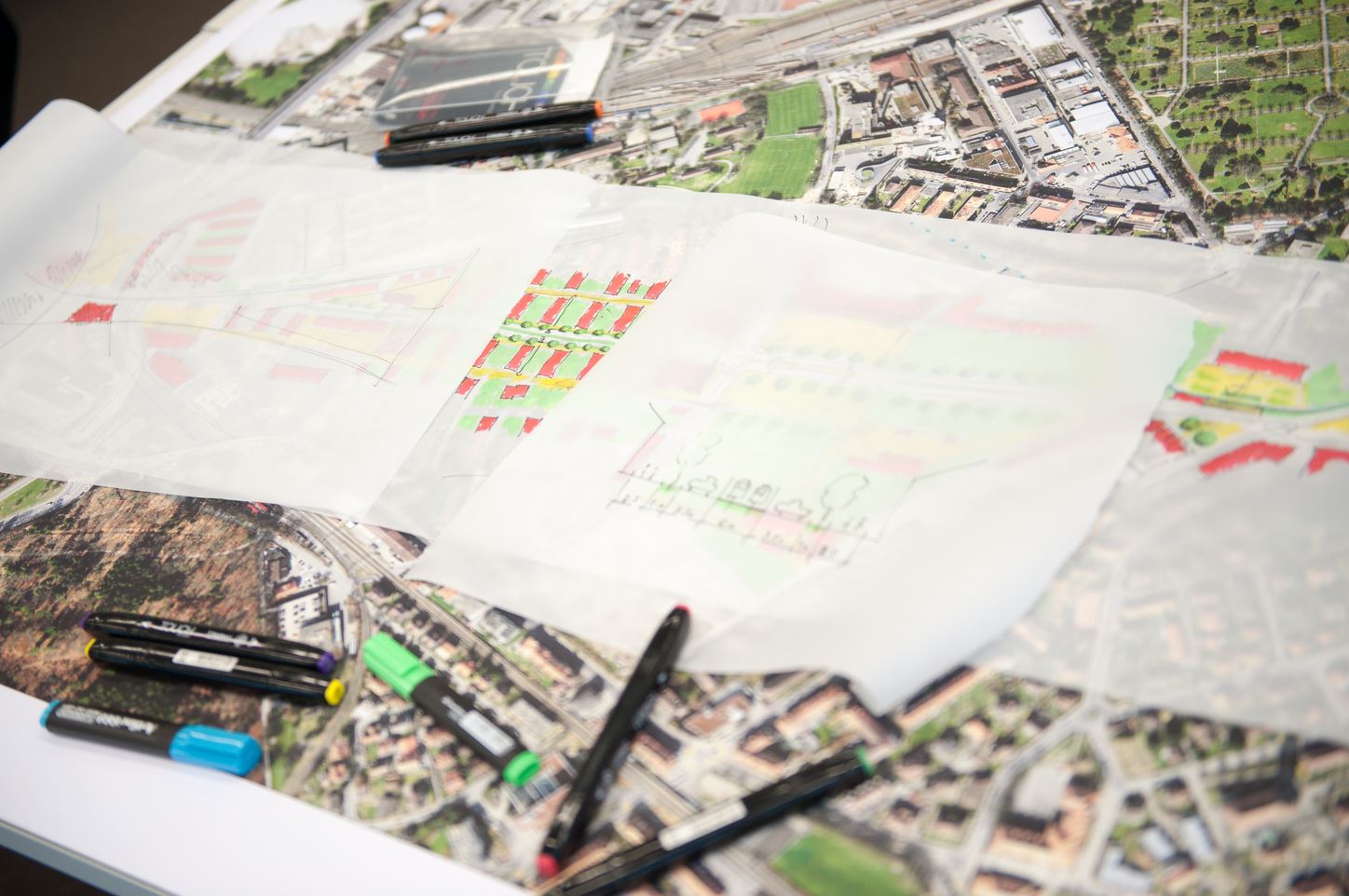Education-STL
The STL provide the backbone of teaching in the field of spatial planning at the Institute for Spatial and Landscape Development (IRL). We not only offer basic knowledge of spatial development and urban transformation but also thematic in-depth courses in the bachelor’s and master’s programmes. In our courses we deliver practical knowledge as well as the theoretical and methodical background for planning in multi-actor networks. Our goal is to translate between these three aspects and enable students to discover and solve complex panning tasks. In order to reach this goal, a wide range of topics are discussed in the light of current insights, future challenges and new perspectives regarding spatial transformation. Joint decision-making and the addressing of complex problems lie at the core of these discussions. Also, our teaching formats serve the connections between students in the field of the Network City and Landscape (NSL).

Methodologically, we focus on designing and experimenting, interaction and discourse, as well as reflecting on one's own actions. Our two core lectures Transformation of Urban Landscapes and Design and Argumentation in Spatial Planning combine these characteristics and therefore provide fundamental knowledge for the Master's programme Spatial Development and Infrastructure Systems. The same methodical goal applies to the supervision of our bachelor thesis, term papers (“Seminararbeiten”) and master theses in the Spatial Development and Infrastructure Systems (SD&IS) programme.
In addition, the STL teaches in the further education programmes MAS / CAS / DAS in spatial planning. Here we focus on exploring the connection between theoretical knowledge and planning processes in real spatial situations in order to convey approaches how to deal with complexity. In addition to conducting lecture weeks, the STL are involved in the organization of two one-year project studios and supervise the final theses. PD Dr. Joris Van Wezemael has been head of the MAS / CAS / DAS programme (study delegation) since the end of 2020 and leads the further development of the study programme. In the future, this is to be closely linked with the teaching offers of the FCL
- Transformation of Urban Landscapes (MSc)
- Spatial Design and Argumentation in Planning (MSc)
- Introduction in Spatial Development and Transformation (MSc)
- Theory and Methodology of Spatial Planning (MSc)
- Economical Land Use (MSc)
- Site and Project Development (MSc)
- Spatial Planning and Landscape Development (BSc)
- Integrated Spatial Planning in Cities and Districts (BSc)
Signature Lectures
In two signature lectures the STL provide insights into spatial design and argumentation as well as the core issues and questions relating to urban transformation:
Transformation of Urban Landscapes
The course provides an introduction to the science of cities and to complexity-based approaches in spatial planning. It heavily draws on practice examples and steps beyond “command-and-control” approaches to spatial development. Cities and their planning have always been complex but the age of globalisation has exposed this complexity. This is caused by the interconnection of hitherto rather isolated places and systems across scales on the basis of information and communication technologies. In such a context, an increasing number of planning problems remain unaffected by “command-and-control” approaches to spatial development. Particularly in the field of inward development and urban densification, the coupling of economic, technical, political and social systems gives rise to the very dynamics which contemporary planning must address.

Design and Argumentation in Spatial Planning
The course provides essential knowledge on urban and spatial design as well as argumentation techniques. Designing and arguing are two essential components of planning activities. Designing (or also drafting) is considered an instrument for exploring and testing possible courses of action but also for finding key questions in complex problem situations. Argumentation contributes to communicating decisions within the planning process and to wining over spatially significant stakeholders. Throughout the semester, the students get to explore and test the power of design in an integrated project while strengthening their reasoning skills.

